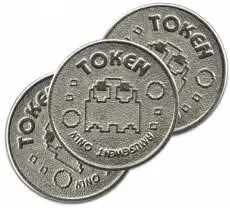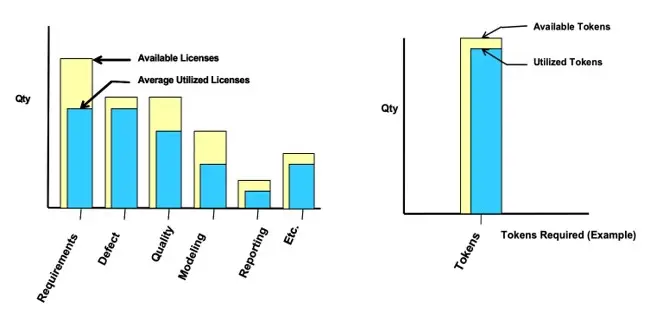What is IBM Token Licensing?
In today’s fast-paced software development environment, choosing the right licensing model proves crucial because it significantly impacts an organization’s efficiency, cost management, and overall success. Moreover, the IBM Tokens Licensing Model stands out as a revolutionary approach that offers unparalleled flexibility and cost-effectiveness while enabling organizations to optimize their software investments and maximize resource utilization simultaneously.
As software development becomes increasingly complex, organizations need tools that adapt to their evolving requirements. However, traditional licensing models, often rigid and costly, hinder productivity and lead to underutilization of valuable software assets. This is where IBM Tokens Licensing makes a difference. It provides a dynamic and versatile solution designed specifically to meet the demands of modern software development. By offering a unified licensing model that teams, products, and geographical locations can share, IBM Tokens Licensing empowers organizations to allocate resources more efficiently, reduce costs, and ultimately enhance collaboration.

IBM Tokens Licensing offers a flexible, token-based licensing model that enables organizations to access a wide range of IBM Engineering Lifecycle Management (ELM) products using a single, unified currency — tokens. In this system, these tokens act as a digital currency, allowing organizations to “purchase” the use of various IBM software tools without needing to buy individual licenses for each product.
Here’s how it works: Instead of purchasing separate licenses for each software tool, an organization buys a pool of tokens. Then, the organization allocates these tokens to different software tools as needed, based on the specific requirements of a project or team. When a user needs to access a particular tool, they “borrow” the necessary tokens from the pool. After the user finishes using the tool, they return the tokens to the pool, making them available for other team members or different tools. This dynamic process allows organizations to flexibly and efficiently manage their software resources.
IBM licensing provides the flexibility to use the right tool at the right time
- Token are used similar to tokens in an arcade.
- Each product in the IBM ELM suite requires a certain amount of tokens to use.
- However, unlike at an arcade, when you are done using a product those tokens get checked back into the tokens pool and can be reused.
- Tokens in short float across users and across products.
- Reducing the need for a specific product type and license count allocation.
License Model in a nutshell
- One unified license for all ELM products – instead of dedicated licenses for each single product
- License consumption adequate to the product value which is currently used – instead of expensive monolithic platform license
- Instead of buying new products – existing licenses can be transformed into Token – (e.g. 10 DOORS = 100 Tokens)
- Max. license utilization (cost & flexibility) – (20%-60% license saving)
How Does IT Work?
The IBM Tokens Licensing model is designed to be intuitive and flexible, making it easy for organizations to manage and allocate software resources. Here’s a closer look at how it operates:
Token Pool Creation: Organizations purchase a set of tokens that are placed into a central pool. This pool is shared across the entire organization, making it accessible to various teams and projects.
Token Allocation: When a team member needs to use a specific IBM software tool, they draw the required number of tokens from the pool. Each tool requires a certain number of tokens, which are specified by IBM. The tokens remain allocated to that user for as long as the tool is in use.
Token Return: Once the user is finished with the tool, the tokens are returned to the pool, making them available for use by others. This dynamic allocation ensures that tokens are utilized efficiently, minimizing waste and maximizing the value of the investment.
Global Access: IBM Tokens Licensing supports geographically distributed teams by allowing tokens to be used across different locations and time zones. This ensures continuous productivity as tokens can be reallocated from one region to another as work shifts.
IBM Token Licensing applies to the following products:
- IBM Engineering Requirements Management DOORS Next: A tool for managing requirements and ensuring traceability across the development lifecycle.
- IBM Engineering Systems Design Rhapsody: A solution for model-based systems engineering, supporting complex system designs.
- IBM Engineering Test Management: A collaborative test management tool that supports comprehensive testing activities.
- IBM Engineering Workflow Management: A tool that helps manage tasks, track progress, and facilitate team collaboration.
- IBM Engineering Lifecycle Optimization – Engineering Insights: A tool that provides insights and analytics across the engineering lifecycle.
- And many more products from IBM Engineering portfolio
Role | Token consumption |
|---|---|
| Engineering Workflow Management Developer | 8 |
| Engineering Workflow Management Developer for IBM Enterprise Platforms | 9 |
| Engineering Workflow Management Contributor | 5 |
| Engineering Workflow Management Stakeholder | 1 |
| Engineering Test Management Quality Professional | 10 |
| Engineering Test Management Contributor | 5 |
| Engineering Requirements Management DOORS® Next Analyst | 9 |
| Engineering Requirements Management DOORS Next Contributor | 5 |
| IBM Engineering Lifecycle Optimization Engineering Insights User | 7 |
| IBM Engineering Systems Design Rhapsody® – Model Manager Systems and Software Engineer | 4 |
| IBM Automotive Compliance content user | 1-2 |
Key Benefits of IBM Token Licensing
- Unmatched Flexibility
IBM Tokens Licensing offers unprecedented flexibility, allowing organizations to adapt their software usage to meet changing project demands. Tokens can be reallocated across different tools, users, and locations, ensuring that resources are always optimally utilized. - Cost Efficiency
By centralizing license management and allowing tokens to float between users and tools, IBM Tokens Licensing significantly reduces the need for over-purchasing licenses. This model can lead to cost savings of up to 60%, making it a highly cost-effective solution. - Enhanced Collaboration
The ability to share tokens across various teams and tools fosters seamless collaboration within the organization. Whether it’s for requirements management, systems engineering, or testing, IBM Tokens Licensing enables teams to work together without the constraints of traditional licensing models. - Geographical Flexibility
IBM Tokens Licensing supports global teams by allowing tokens to be used across different regions and time zones. This flexibility ensures that all team members have access to the necessary tools whenever they need them, regardless of their location. - Operational and Financial Flexibility
Unlike traditional perpetual licensing models, IBM Tokens Licensing is typically treated as an operational expense (OpEx). This approach reduces initial expenditure and provides organizations with greater financial flexibility, making it easier to align software costs with project budgets. - Seamless Integration and Scalability
IBM Tokens Licensing seamlessly integrates with IBM’s suite of ELM tools, eliminating compatibility issues and enhancing data flow across the engineering lifecycle. Additionally, the model is scalable, allowing organizations to easily adjust their token pool as their needs evolve.
IBM Tokens Licensing represents a significant advancement in software licensing, offering a flexible, cost-effective, and scalable solution that aligns with the needs of modern software development. By enabling organizations to optimize resource allocation, enhance collaboration, and reduce costs, IBM Tokens Licensing is not just a licensing model — it’s a strategic tool for driving innovation and efficiency in software development.
As organizations continue to navigate the complexities of today’s software landscape, adopting a dynamic licensing approach like IBM Tokens Licensing will be crucial for staying competitive and achieving long-term success.
If you have more questions and cannot find the answer on the IBM website, please contact us directly.



